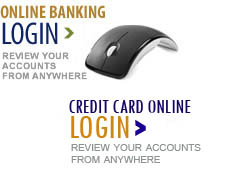Customer Service
Account Security
ECAB utilizes various security measures to ensure that your transactions and personal information are protected. However, you the customer must play your part in protecting your banking and personal information.
INTERNET SECURITY TIPS
Many online users are targeted by online hackers through Phishing, Spyware and Adware, Viruses, Worms and Trojans. We have developed a number of tips and to help you minimize your chances of becoming a victim of identity theft and other online scams.
You can minimize your online risk by:
- Always accessing E-Banking by typing the address into your web browser. If in doubt, contact our customer service center (268-480-6187).
- Be extra careful when using internet cafes or public computers or other computers that do not belong to you.
- Delete your Internet browsing history frequently.
- Change your E-Banking password on a regular basis.
- Use strong passwords or pin numbers for your internet account. Try to choose passwords that are difficult for others to guess by incorporating letters, numbers and symbols.
- Use both letters and numbers and a combination of lower case and capital letters if the passwords or pins are case sensitive.
- Never use birthdates, your names or the names of close family members as your password.
- Keep your PC secure. Use up-to-date anti-virus software, security patches and a personal firewall. Perform regular scans of your computer.
- Do not reply to any e-mail from a business or person requesting personal information such as username, password or PIN or other highly sensitive information. Authentic ECAB emails will never request that type of information.
- Open e-mails only when you know the sender. Immediately delete emails of unknown origins.
- Be especially careful about opening an e-mail with an attachment. Even a friend may accidentally send an e-mail with a virus.
- Be careful before clicking on a link contained in an email or other message. The link may not be trustworthy.
- Do not send sensitive personal or financial information unless it is encrypted on a secure website. Regular emails are not encrypted and are more like sending a post card.
- Look for the padlock symbol on the bottom bar of the browser to ensure the site is running in secure mode before entering sensitive information.
- Be especially wary of unsolicited e-mails originating from outside of Antigua.
- Always check your bank statements. If you notice anything irregular, contact us immediately.
If you receive an email requesting you to re-register or re-enter sensitive details, delete it immediately and notify us by using our messaging system or email us at info@ecabank.com
SECURITY UPDATES
ECAB attempts to keep you informed of the latest Internet security threats and updates. We encourage you to visit our website frequently to keep updated with the latest security alerts.


